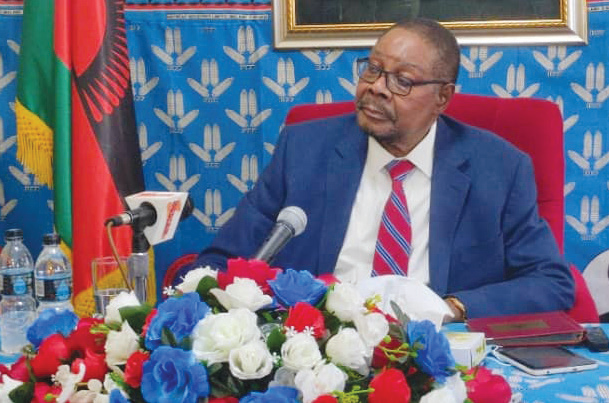Time to focus on debt management
That the World Bank has urged government to reign in its rising debt should spur the Tonse-Alliance and all Malawians to rethink the nation’s expenditure.
In its Malawi Economic Report, the World Bank has urged Malawi to pay for its recurrent expenditure using locally readily available resources. Basically, the Bank wants Malawi to spend within its means.
This is the number one principle in financial management. Any rational thinking individual, institution and State should budget within the resources that are available on hand and can reasonably expect to get in the long-term.
Unfortunately, that reasoning seems to be in incredibly short-supply as far as Malawi’s political leadership is concerned. It seems political administrations plan national budgets based on unrealistic projections for economic growth and revenue collection.
Political administrations, as far as I can remember, from the UDF through to the DPP, PP and now Tonse Alliance, usually develop budgets that cannot be financed on the resources that are readily available.
More often than not, those unrealistic projections come back to bite the State, which at this point has no option but to either trim the budget or borrow to ensure that they deliver the budget they promised.
Of course, in Malawi’s political environment, the governing party would rather borrow and leave the ensuing debt as a problem for future generations to solve than to spend within its means.
To be clear, the layman does not think that debt is inherently bad. Debt is actually good and can improve people’s livelihoods if it is properly managed. Which brings us to the World Bank’s recommendation.
It reads: “Government needs to make hard choices about expenditure priorities, including ensuring that subsidies for agricultural production are sustainable and containing an increasing wage bill.”
The take-away from the Bank’s recommendation is using a rational and carefully crafted cost-benefit analysis to ensure that the scarce resources at Malawi’s disposal can be channelled towards productive ends.
That advice has been offered to the government many times before that it has now become a cliché. Unfortunately, no political administration seems to want to take it into consideration.
The layman would rather see the Tonse Alliance use the resources that it has towards plans outlined in the Malawi Vision 2063 and the third iteration of the Malawi Growth and Development Strategy (MGDS III).
However, the layman knows that will remain a far-fetched dream in the current political environment. A year on from taking over the country’s leadership, the Tonse Alliance is under ridiculous pressure to fulfil its campaign promises.
The opposition and their supporters stand at the ready to capitalise on the perceived failures of the Tonse-led administration. And therein lies the problem with Malawi’s political-economic environment.
The Tonse Alliance will probably continue with projects that will not guarantee a reasonable return on investments like the Affordable Input Programme lest it cedes its political advantage to the opposition.
From a layman’s perspective, it would be better if Malawians stopped dwelling on the unrealistic campaign promises that Chakwera and his deputy SKC made in the lead up to the 2020 presidential election and focus on a more meaningful goal—reining in Malawi’s rising debt.
Any rational individual should know by now that it was and still is impossible for this administration to create one million jobs in one year when previous administrations have for over a decade failed to fill the vacancies in its own domain—the civil service.
The former governing DPP plunged the nation right back into debt with the Farm Input Subsidy Programme and other politically motivated strategies. The AIP if not properly managed will drive us down the same path with potentially devastating consequences.
The layman thinks the time is ripe for Malawians to accept that an eloquent salesman sold them a bad bill of goods, give up the unrealistic politically-driven development initiatives and focus on manageable projects.
A good starting point would be improving tax administration, revenue collection and the quality of public spending to cushion Malawians from the devastating impact of the coronavirus pandemic.
That way, we ensure that the little that Malawi has goes to doing the most important job of all—protecting people’s livelihoods.





